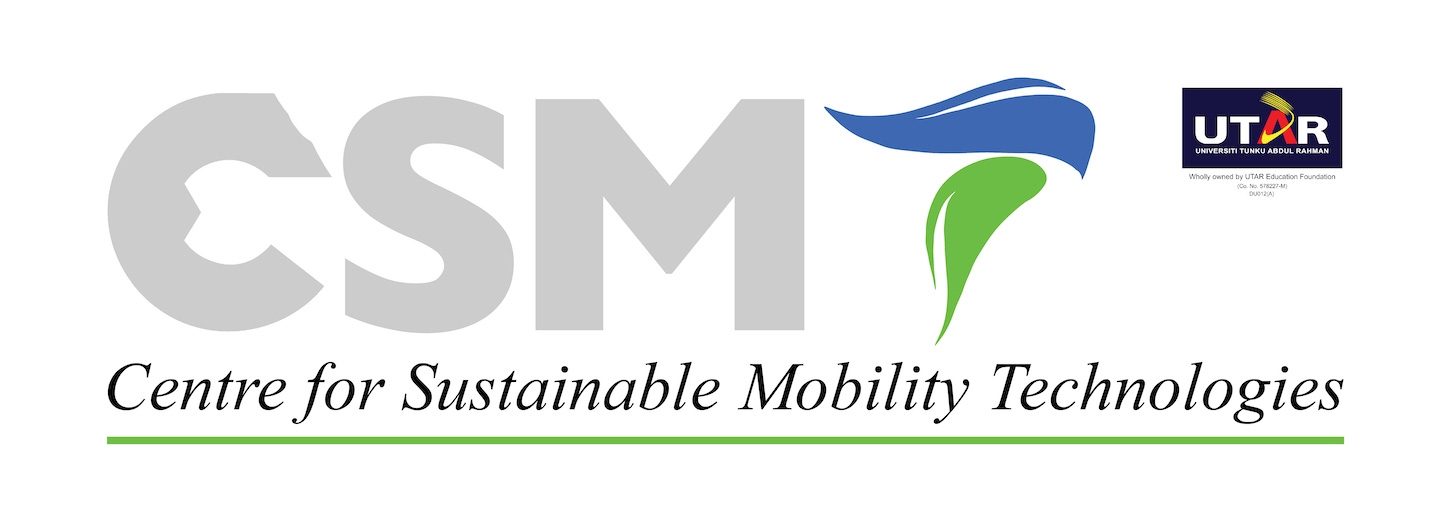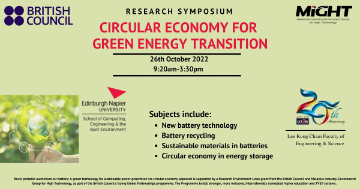Research Symposium “Circular Economy for Green Energy Transition”
October 26 @ 9:20 am - 3:30 pm
Circular economy is a system aiming to get the most out of materials, keep products and materials in use and design them to be cycled back into the economy, eliminating waste. This idea is a vital pillar of the energy transition. Nowadays, numerous researchers from the globe are focusing on how to maximise the use and recycling of sustainable materials for energy transition. This symposium, which is under the Research Environmental Links Grant, is to establish a platform for experts from academia and industry to discuss the above topic. In the meeting, professors from different universities will give talks on sustainable materials and the idea of remanufacturing. Specialists from battery manufacturing industry will also explain the cutting edge technology and their view in this area.
Subjects include:
- New battery technology
- Battery recycling
- Sustainable materials in batteries
- Circular economy in energy storage
Webinar: Managing HVAC Systems to Reduce Infectious Disease Transmission
Prof. William Bahnfleth is a professor of architectural engineering at the Pennsylvania State University. He held previous positions as Senior Consultant for ZBA, Inc. in Cincinnati, Ohio and Principal Investigator at the U.S. Army Construction Engineering Research Laboratory in Champaign, Illinois. He holds BS, MS, and PhD degrees in Mechanical Engineering from the University of Illinois and is a registered professional engineer. At Penn State, Dr. Bahnfleth teaches undergraduate courses in HVAC fundamentals and system design, and graduate courses in district cooling systems and indoor air quality. His research interests cover a wide variety of indoor environmental control topics including chilled water pumping systems, stratified thermal energy storage, protection of building occupants from indoor bioaerosol releases, and ultraviolet germicidal irradiation systems. He is the author or co-author of more than 170 technical papers and articles and 14 books and book chapters. Dr. Bahnfleth is a fellow of ASHRAE, the American Society of Mechanical Engineers (ASME) and the International Society for Indoor Air Quality and Climate (ISIAQ). He served as President of ASHRAE in 2013-2014 and currently chairs the ASHRAE Epidemic Task Force. His ASHRAE honors include the Louise and Bill Holladay Distinguished Fellow Award, E.K. Campbell Award, and F. Paul Anderson Award. He is also a recipient of the Penn State Engineering Alumni Society’s World-Class Engineering Faculty Award and a Penn State Exemplary Designation for Faculty Outreach.
Topic covers basic engineering controls, primarily for airborne exposure, and how they fit in with overall risk management. The air and surface disinfection will also be discussed.
Webinar: Importance of Ventilation in SARS-CoV-2 Transmission
Date: 14 August 2021 (8PM - 10PM)
Speaker’s Biography


